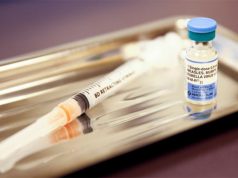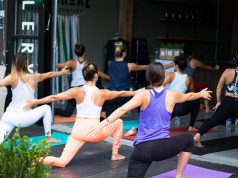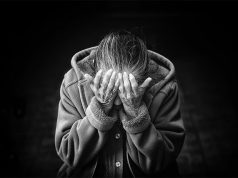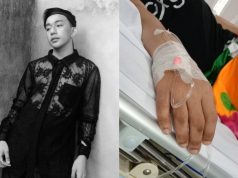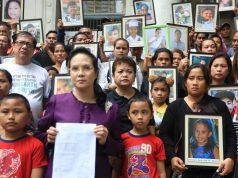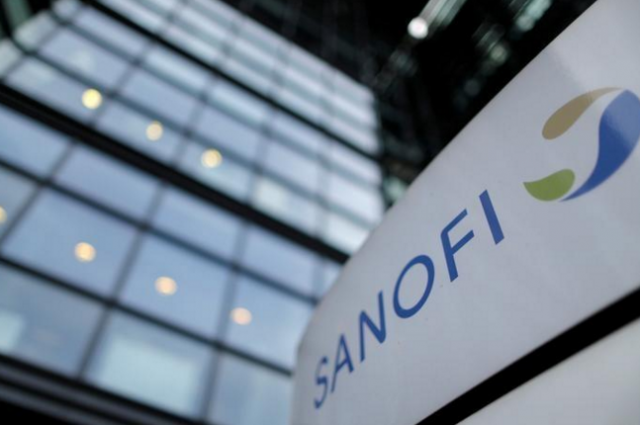
(UPDATED — 2: 11 p.m.) MANILA, Philippines — Sanofi Pasteur has denied that Filipinos were turned into “guinea pigs” to test the firm’s anti-dengue vaccine Dengvaxia, explaining that the immunization of public school students was a public health program conducted by the Department of Health (DOH), and not part of a clinical trial.
Also, the multinational drug company denied a report by Dante Jimenez of the group Volunteers Against Crime and Corruption (VACC) that Dengvaxia had caused the death of three Filipino school children in Central Luzon who were reportedly injected with the vaccine in April 2016.
In a press conference in Taguig City on Monday, officials of the French pharmaceutical giant also clarified what they meant by “severe” dengue when they said that increased risk of hospitalization could happen to individuals who received Dengvaxia shots first before they contracted the mosquito-borne tropical disease.
“Ang iniisip kasi natin na kapag severe, ito na ‘yong dengue shock na mamamatay. Hindi… Ang severe could only be ‘yong lagnat ng dalawang araw, at kapagka may suspect na case ng dengue, ‘yong platelet count p’wede bumaba,” said Sanofi Pasteur regional director Dr. Joselito Sta. Ana.
[We think that when it gets severe, it would lead to a dengue shock and becomes fatal. But that’s not the case… Severe here could only be fever for two days, and if there’s a suspected case of dengue, the platelet count could go down.]
“P’wede ring kapagka nabunggo ka, magkaka-hematoma ka o magkakapasa ka. At p’wede ring parang pagka nainitan ka, mababalinguyngoy ka [It could also mean that if you bump into something, you would get hematoma or bruises. And if it gets hot, you could get a nosebleed],” he added.
Still beneficial to majority of Filipinos
Sanofi executives also stressed that the drug would still be beneficial to majority of Filipinos, given that nine out of ten of them aged nine to 14 years old had already been infected with dengue but not all were hospitalized for the illness, given that three-fourths of dengue cases were asymptomatic.
Based on the the pharmaceutical firm’s new analysis, there is a “very clear and sustained benefit vaccinating those who previously had a dengue infection before… potentially preventing 15 dengue hospitalizations or four clinically severe dengue episodes per 1,000 vaccines,” said Sanofi Pasteur global medical head Dr. Ng Su Peing.
However, among those who have not had dengue before, she said that “we would not recommend vaccination.”
She added, “In the longer term, (there is) an increased risk of hospitalized and severe dengue in the vaccinated people without a prior history of dengue infection before they had a vaccine, potentially adding five dengue… hospitalizations or two clinically severe dengue episodes per 1,000 of such vaccines.”
Based on their clinical trial data over a five-year period, among 1,000 individuals who had gotten dengue infection before they were vaccinated, there was a reduction of 15 hospitalization cases and a reduction of four severe dengue cases.
This figure represents majority of the people who live in areas where dengue is highly endemic, including the Philippines.
Ng said further noted that the same data showed that over a five-year period, there were five individuals who were hospitalized for dengue and two others who suffered from severe dengue among 1,000 individuals who had not contracted the disease before they were vaccinated with Dengvaxia.
She said that while the latest findings about Dengvaxia had caused anxiety among Filipino parents whose children already got vaccinated with the drug, “I think what you need to remember as well is that as we’ve seen with the data, more than nine out of ten of people here in the Philippines from adolescence have already had a dengue infection before.”
“For those who don’t know, truly don’t know what their status is, the data still shows that overall, in highly dengue-endemic areas, the vaccine is preventing… there’s far fewer cases, significantly fewer cases of severe dengue and dengue hospitalizations in those who’ve been vaccinated versus those who didn’t receive the vaccine,” Ng said.
Sanofi downplays VACC report on Dengvaxia-linked deaths
Meanwhile, Sanofi Pasteur medical director Dr. Ruby Dizon stressed that a person’s exposure to the dengue virus causes the disease and not the Dengvaxia vaccine itself.
Also, Dizon downplayed a report by the VACC’s Jimenez that three children died after they were vaccinated with Dengvaxia, noting that the cause of their deaths had not yet been validated by experts.
She said an independent group convened by the DOH called National Adverse Event Following Immunization Committee is the entity that assesses reports about the adverse effects of Dengvaxia based on the information gathered by the department and the Food and Drug Administration (FDA).
Sanofi Pasteur general manager Ching Santos said that while Dengvaxia poses risks among those who have not yet contracted dengue but already had themselves immunized, the product “has gone through rigorous tests” and “has been developed over 20 years.”
“The Philippines is actually one of those (involved) from phase one, two, and three, which is really a robust study. All the information, documents were shared with our FDA, and even WHO, at lahat po ito ay nasa kanila (everything is with them). And in fact, it’s not just the Philippines. There other countries that licensed and made it available in their countries,” said Santos.
She added, “Ang dengue ay isang napakalaking burden sa country, kailangan din natin siyang i-address talaga para naman bumaba ang kaso nito (Dengue is a huge burden on the country. It must be addressed so that its prevalence will be reduced).”





